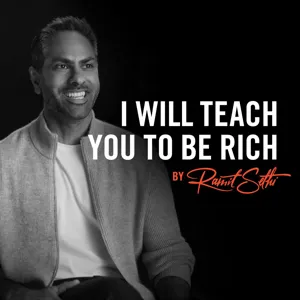Podcast Summary
Learning Effective Communication Skills from Experts: Effective communication skills are vital for success in business and life. The Think Fast, Talk Smart podcast offers insights from experts on making small talk, managing anxiety, taking risks, and more. Understanding the importance of personal investment philosophies and preparing for potential impacts of inflation are also key topics.
Effective communication skills are essential in business and life, and the Think Fast, Talk Smart podcast can help hone these skills. Hosted by Stanford lecturer Matt Abraham, the podcast features experts discussing tips on making small talk, managing anxiety, taking risks in communication, and more. High-level communication skills are crucial for various situations, from crafting an elevator pitch to delivering powerful presentations. The podcast covers a range of topics with experts like neuroscientist Andrew Huberman, speechwriter Dan Pink, and psychologist Kelly McGonigal. Furthermore, Aswath Damodaran, professor of corporate finance and valuation at New York University, emphasizes the importance of choosing an investment philosophy that fits you personally, rather than relying on great investors like Warren Buffett or Peter Lynch. Lastly, Damodaran discusses how unexpected high levels of inflation can have significant impacts on corporations and individuals, with the average inflation rate being more important than the absolute inflation rate. It's crucial to understand the potential consequences of inflation and adapt accordingly.
The impact of inflation on businesses and investments: Unpredictable inflation can lead to losses for bonds and investments, potentially causing a painful recession. Prepare for potential inflation-induced economic downturn and consider Powell's leadership as a factor.
Operating in an economy with stable and predictable inflation is easier for businesses and investors compared to an economy with unexpected inflation. The speaker argues that we've been spoiled by a decade of low and stable inflation, but now that inflation is back, it's important for everyone to consider it in their decision-making. If inflation comes in higher than expected, it can lead to a loss of value for bonds and other investments. A hard landing from high inflation could result in a painful recession, while a soft landing would mean a milder recession with some pain. Stanley Druckenmiller has warned that when inflation rises above 5%, a soft landing is unlikely. The speaker emphasizes the importance of building inflation into every decision and being prepared for the potential pain and length of the recession. The outcome of Jerome Powell's leadership as Federal Reserve Chair could be a key factor in determining the severity of the upcoming economic downturn.
Fed's History of Giving Up on Fighting Inflation Too Early: The Fed's past actions of easing up on inflation too soon could lead to more economic pain, especially for the less fortunate. Strong leadership and commitment to combating inflation, regardless of political pressures, are crucial.
The Federal Reserve's history of giving up on fighting inflation too early is a cause for concern during current inflationary periods. The worry is that the Fed may ease up too soon, leading to more pain for those at the bottom of the economic spectrum. A preferred scenario would be for a strong leader like Paul Volcker to step in and implement the necessary measures to combat inflation, despite the political pressures and potential hard landing. When evaluating investments, focusing on cash flows, growth, and risk is crucial for determining value in traditional asset classes such as equities and bonds. However, for non-traditional assets like collectibles and gold, pricing becomes the primary consideration. It's essential to understand that the price part of the investment is not entirely within your control, as it depends on market demand, supply, mood, and momentum.
Identifying catalysts for price alignment with value: Engage with diverse investment perspectives, understand time horizons, and identify catalysts to minimize risk in price-driven markets
While investors focus on determining the value of a company, they have less control over the price in the market. The price is influenced by various factors and market dynamics, often driven by traders. Therefore, it's crucial for investors to identify catalysts that can cause the price to align with the value. Engaging with people who have different investment philosophies, such as traders, can provide valuable insights and help investors navigate the market more effectively. Additionally, having a clear understanding of time horizons and being patient can help minimize the risk associated with being at the mercy of price movers. Ultimately, recognizing the interdependence of investors and traders and embracing diverse perspectives can lead to more informed investment decisions.
The Long-Term Advantage of Individual Investors: Individual investors have an edge over portfolio managers due to a longer time horizon. Focus on research, conviction, and holding undervalued stocks, rather than reacting to market volatility or external pressure.
As an individual investor, having a long-term time horizon is an advantage over portfolio managers who must cater to their clients' needs. The speaker emphasizes that time is an ally for investors, but recognizes that markets can be irrational and unpredictable, and even the longest-term investors may eventually face liquidity needs. The speaker also challenges the notion that beta is a reliable measure of risk, suggesting instead that it reflects the risk of investors abandoning a stock due to price volatility. Thus, individual investors should focus on their own research and conviction, and hold onto undervalued stocks for as long as they believe in their potential, rather than succumbing to external pressure or market volatility.
Understanding personality and risk tolerance matters in investing: Self-awareness and tracking personal discomforts are crucial to minimize their impact on investment decisions. The best investment philosophy is the one that resonates with an individual's unique personality and risk tolerance.
Successful investing is not just about following a particular investment philosophy or strategy, but also about understanding and embracing one's own personality and comfort level with risk. The speaker, who has a decade-long experience in investing, shares his observation that many investors fail to replicate the success of great investors despite their best efforts. He attributes this to the lack of necessary psychological readiness and temperament to stick with their investment decisions, especially during market downturns. The speaker emphasizes the importance of self-awareness and keeping track of personal discomforts in investment portfolios to minimize their impact on investment decisions. Ultimately, the best investment philosophy is the one that resonates with an individual's unique personality and risk tolerance.
Skepticism towards the effectiveness of ESG initiatives: Despite widespread adoption, skepticism remains about the genuine impact of ESG initiatives on ethical practices and financial returns, with concerns over marketing hype and profitability.
The speaker expresses skepticism towards the idea of Environmental, Social, and Governance (ESG) initiatives, viewing them as potentially more about marketing hype and sales opportunities than genuine efforts with meaningful consequences. The speaker's concern stems from the belief that being good and making sacrifices for the greater good has always been a challenge for individuals and organizations throughout history. The speaker's suspicion was piqued in 2019 when they noticed the widespread adoption of ESG by corporations and investors, who were promised that they could achieve both ethical practices and higher returns. However, the speaker found the research backing up these claims to be of questionable quality, and they believe that it's more likely that profitable companies can afford to prioritize ESG initiatives rather than the other way around. Ultimately, the speaker questions the beneficial impact of ESG on the world and is interested in exploring alternative approaches.
ESG and Financial Returns: A Complex Relationship: ESG investments don't guarantee better financial returns, and the cost of implementing ESG initiatives can be high. Prioritize ethical practices, but consider potential financial implications.
ESG (Environmental, Social, and Governance) is not a guaranteed path to better financial returns. While it's a personal choice to prioritize ethical business practices, the resources required to implement ESG initiatives can be costly, especially for companies with limited financial resources. The perceived correlation between ESG and higher returns is largely due to the overrepresentation of tech stocks in ESG portfolios. Ultimately, being good comes with a cost, and it's essential for individuals and businesses to make informed decisions about which companies align with their values while considering the potential financial implications. The idea that ESG can deliver superior returns is a misconception, and it's crucial to prioritize ethical practices while acknowledging the potential trade-offs. The decision to invest in ESG should be based on a careful evaluation of the potential financial impact alongside the ethical considerations.
Consider personal values when investing: Investors should consider their personal values and beliefs when making investment decisions, as they may limit potential returns but allow for a clear conscience.
Investors should consider their personal values and beliefs when making investment decisions, rather than relying solely on external ESG scores. The speaker shared a personal example of avoiding Monsanto due to his wife's strong opposition to the company, and also avoiding Chinese companies due to distrust in the Chinese government. These choices may limit potential returns, but allow the investor to live with a clear conscience. The decision to incorporate personal values into investment choices is a personal one, and should not be outsourced to third-party services. As always, it's important to remember that The Motley Fool may have formal recommendations for or against the stocks discussed, and individuals should not make investment decisions based solely on the information provided.





